On March 8-10, local time, the Google Cloud NEXT '17 conference was held in San Francisco, USA. The heart of the machine was reported as an invited media.
On the first day of the conference, Google Cloud Senior Vice President Diane Greene, Google CEO Sundar Pichai, Alphabet Executive Chairman Eric Schmidt, Google Cloud Machine Learning and Artificial Intelligence Chief Scientist Li Feifei gave a Keynote speech.
In November last year, Li Feifei joined Google and caused great concern in the industry. This time, the first appearance of the Google Cloud Conference was naturally the highlight of the first day of the conference. In Keynote's speech, Li Feifei released several Google Cloud API products on behalf of Google, interpreted Google Cloud's “AI Democratization†strategy, and officially announced Google Cloud's acquisition of the data science community Kaggle.
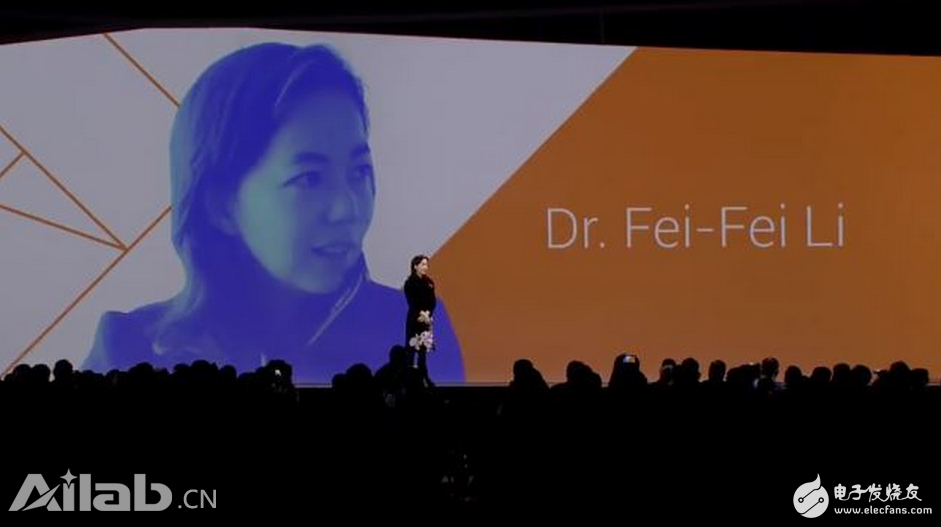
First of all, Li Feifei introduced the application progress of artificial intelligence through some specific cases:
Retail: Machine learning algorithms are helping Google's AdSense to provide consumers with more appropriate advice, but there is still room for improvement, such as supply chain optimization, changing demand over time, and using drones or unmanned vehicles as consumers. Express goods and so on.
Media entertainment: such as Google Photos' automatic photo annotations and YouTube's recommended playlists. Virtual reality and augmented reality rely on computer vision for motion tracking, environmental monitoring, and gaming. Even news reports will be automatically generated. Artificial intelligence will help us create more personalized content such as music, video and art.
Finance: Machine learning is playing an increasingly important role in credit card risk detection, anti-fraud and money laundering.
Healthcare: Artificial intelligence is really improving people's lives, such as intelligent hospitals with sensors and enhanced diagnostics. A few months ago, Google brain researchers showed that deep learning can be used to help diagnose diabetic retinitis.
The application of artificial intelligence is more widespread, but not all developers have the ability to use related technologies. Therefore, Li Feifei believes that the next step of artificial intelligence must be democratization. On the one hand, it will lower the threshold of entry, on the other hand, it will enable developers, users and enterprises to use artificial intelligence as much as possible. Cloud computing is the perfect way to realize the democratization of artificial intelligence, which is why Google is investing heavily in cloud artificial intelligence/machine learning.
Li Feifei said that the artificial intelligence democratization is divided into four aspects: democratization calculation, democratization algorithm, democratization data and democratization talents.
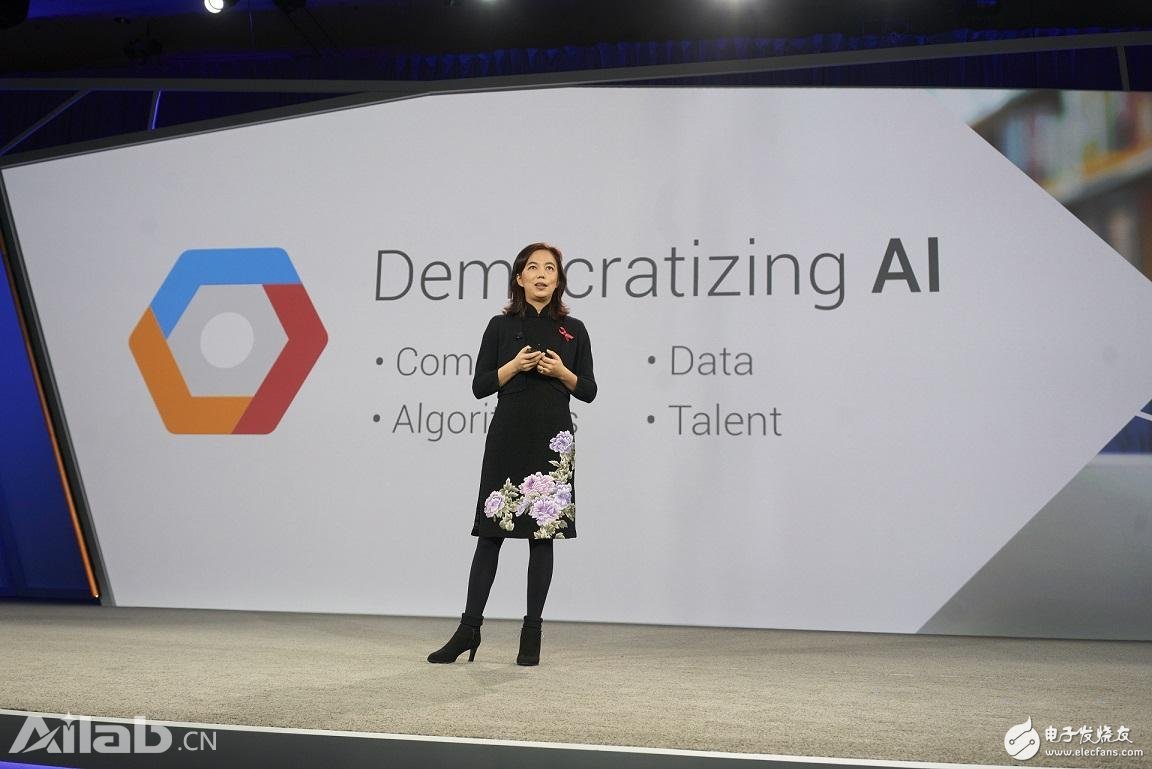
First, the calculation aspect. Deep learning requires a lot of computing resources - there are often hundreds of millions of parameters and billions of connections, and that's where the cloud comes in. Li Feifei said: "Last year, we launched the Beta version of the Cloud ML Engine, and today I announced that it has achieved wider availability. The Cloud ML Engine is a platform that leverages all of Google's computing resources."
With ML Engine, users can use their familiar TensorFlow library to focus on their own ideas and solutions, and Google Cloud handles infrastructure and model issues for users—users upload them to Google Cloud, ML Engine It can process large-scale processing faster and deploy it on mobile devices. But machine learning is still complicated for many applications. As a result, Google has released a trained API that acts like a switch that turns on the smart part of any application to understand speech, images and natural language.
Google has a large research team that has been researching artificial intelligence and machine learning for many years and is one of the organizations with the largest number of best papers. Google is able to quickly turn these research into applications and distribute them to customers.
Secondly, in terms of democratization algorithms, Li Feifei announced a new product, the Vision API. She said that the Vision API, which is being developed steadily, has some very important new capabilities. First, Google extended the API's metadata to millions of entities that recognize knowledge maps from Google Images. Today, they use the same metadata to support Google's map search. Second, enhanced optical character recognition (OCR) capabilities to extract text from text-rich images, such as legal documents.
For the information in the video, Google Cloud also released another new API, the Video Intelligence API, which recognizes objects in the video and helps users retrieve them.
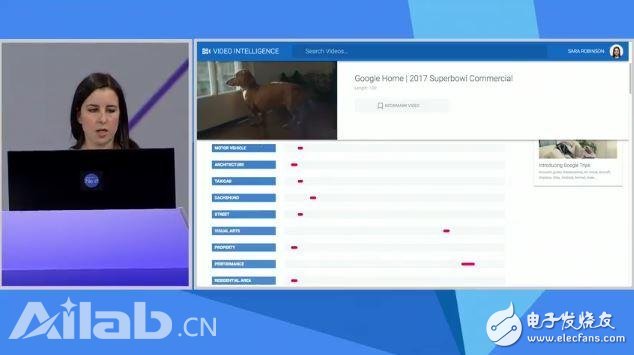
Third, Li Feifei believes that data is another part of democratization. Like humans, artificial intelligence requires a large amount of data to provide insights for self-development. Therefore, data sets are one of the biggest obstacles that artificial intelligence needs to overcome. Although ImageNet has achieved great success, it has experienced many difficulties and some residual problems. Therefore, she believes that we need a more scalable and effective way to democratize data and to target more data scientists, machine learning developers, domain experts and even business users.
A major move by Google Cloud to democratize data is the acquisition of the data science community Kaggle, which brings together more than 850,000 data scientists and has many open source data sets. Li Feifei said that after the acquisition of Kaggle, Google Cloud will provide the most advanced machine learning environment for this large community and provide an opportunity for a direct market model.
In fact, Kaggle has already worked with Google Cloud. Previously, they co-hosted the YouTube 8M Video Understanding Challenge.
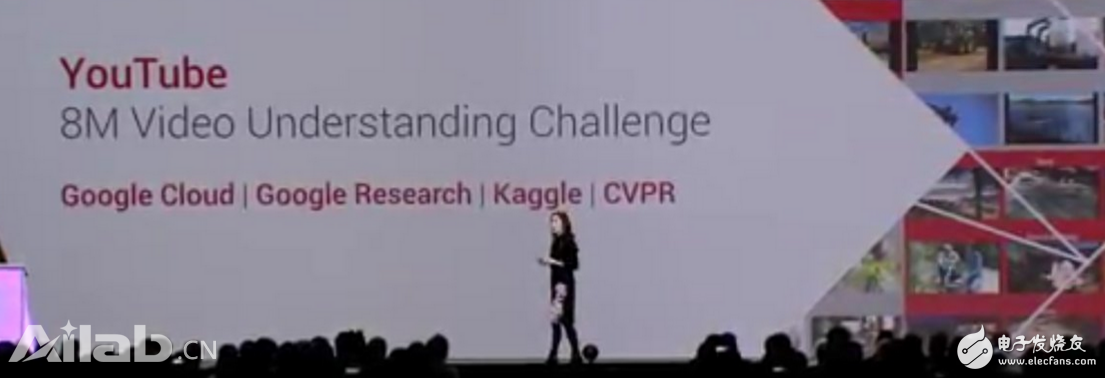
Fourth, the democratization of talents. In response, Google Cloud released the Advanced SoluTIon Lab to enable other companies to collaborate with Google's talent to help them solve complex machine learning problems. USAA has worked with Google through this mechanism and solved its technical problems.
Finally, a tidbit was mentioned. On the day of the conference, it coincided with International Women's Day. Li Feifei also mentioned her doctoral student, Li Jia, the current head of Google Cloud Artificial Intelligence and Machine Learning R&D. Li Feifei described Li Jia as “Another badass woman in Stan, CS and AIâ€, hoping that women can create greater value and win greater respect in more fields of science and technology.
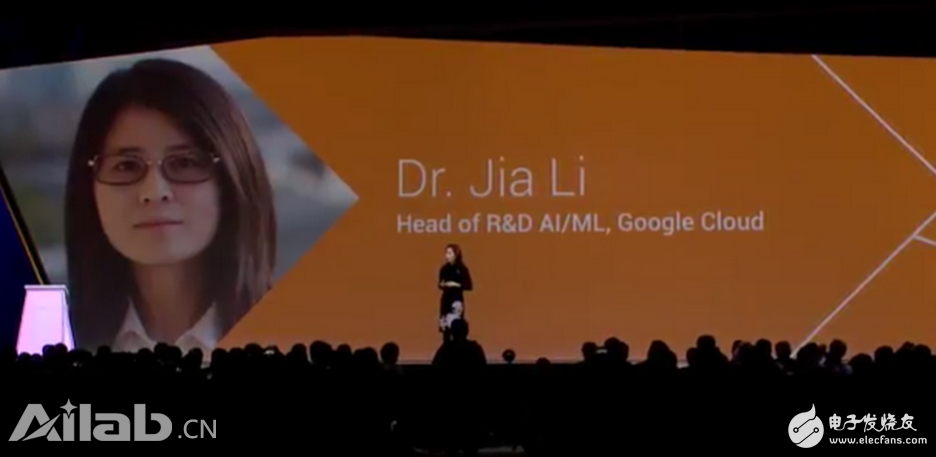
Wonke Electric CO.,Ltd. , https://www.wkdq-electric.com
